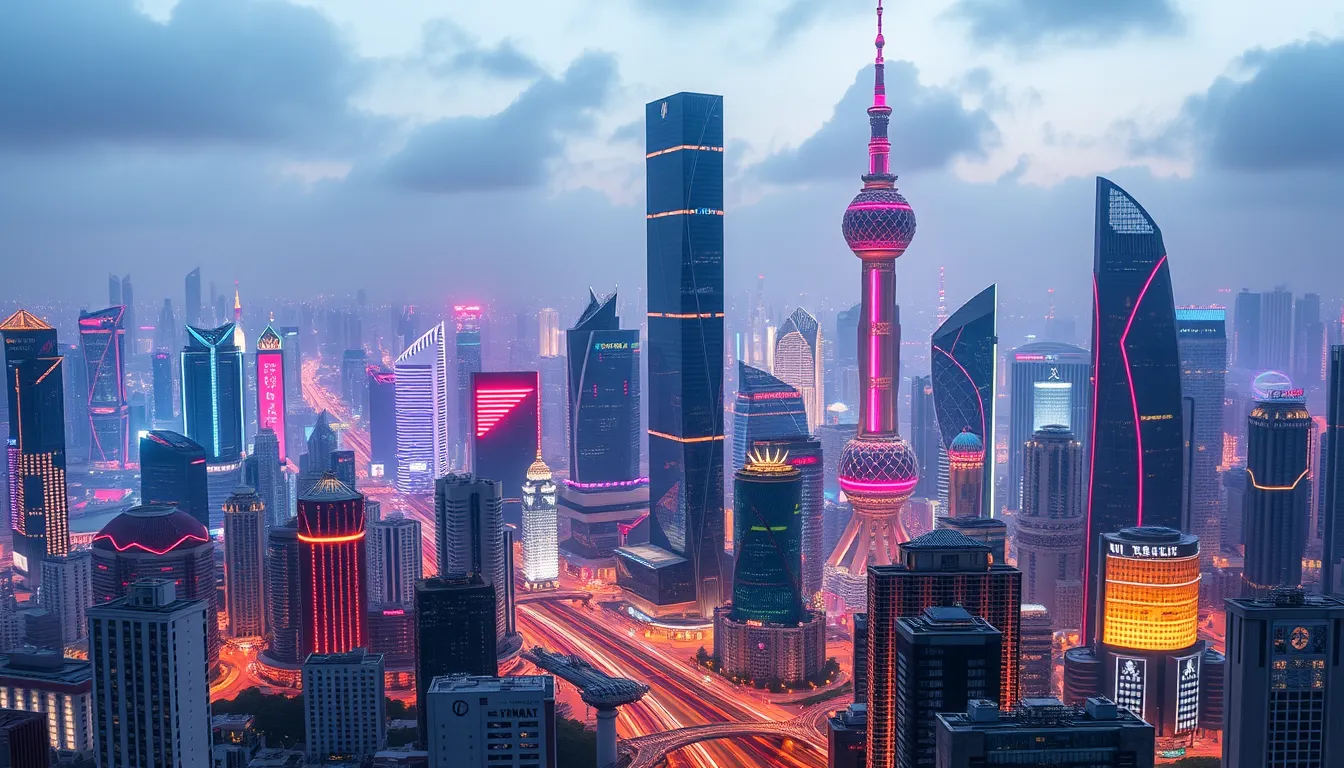Now Reading: Transforming China’s Economy with Mobile Technologies & AI
-
01
Transforming China’s Economy with Mobile Technologies & AI
Transforming China’s Economy with Mobile Technologies & AI

Transforming China’s Economy with Mobile Technologies & AI
The digital revolution in China is not only reshaping its economy but also redefining the very foundation of global industrial standards. With advancements in mobile technologies and artificial intelligence (AI), there is a remarkable synergy that is paving the way for transformative changes. In this article, we explore the dynamic integration of mobile connectivity and AI that fuels economic transformation and drives the future of digital innovation.
The Rise of Mobile Technologies in China
Mobile technologies have evolved rapidly over the past decade. According to a recent GSMA report, this evolution is set to inject an astounding $2 trillion into China’s economy by 2030. The increasing adoption of 5G network capabilities and enhanced digital connectivity stands as a cornerstone for building scalable network infrastructure. Companies and governments alike are investing heavily in state-of-the-art mobile networks to power a new era of digital transformation.
Key factors contributing to this rise include:
- Expansion of 5G network coverage, a critical component in boosting digital connectivity.
- Rapid adoption of smart devices and IoT solutions which facilitate seamless communication.
- Enhanced data transmission speeds that support innovative digital services.
Artificial Intelligence Applications Boosting Innovation
Artificial intelligence is not just a buzzword but a catalyst for change across multiple sectors. China’s aggressive push towards integrating cutting-edge AI applications in industries such as healthcare, finance, and manufacturing has set a new benchmark for economic growth. Several long-tail queries like “cutting-edge AI applications in healthcare and finance” and “integration of mobile connectivity and AI” mirror this trend, reflecting its significance in addressing contemporary challenges.
The synergy between AI and mobile technologies has created solutions that were once considered science fiction. For example, AI systems are now used to analyze vast streams of data in real time, significantly improving decision-making processes in business and public services. This integration has also led to the development of smart cities, where digital connectivity plays a pivotal role in ensuring efficient urban management.
Impact of 5G on China’s Economy
One of the most compelling elements of this technological transformation is the role of 5G networks. Low latency and high-speed data transfer ensure that AI applications perform optimally, thereby maximizing the benefits of mobile technologies. The long-tail keyword “impact of 5G on China’s economy” highlights the moderating, yet critical, influence of next-generation mobile networks on the nation’s economic progress by enhancing real-time connectivity.
Experts argue that:
- The deployment of 5G will significantly improve network infrastructure.
- It will accelerate the adoption of AI in daily business operations and public services.
- Enhanced connectivity is expected to bridge the digital divide in urban and rural areas alike.
Moreover, the GSMA report available at the official GSMA website (https://www.gsma.com/) underpins how these innovations can drive business models and create new opportunities in a competitive market.
Smart Cities and Future Economic Transformations
The concept of smart cities is at the forefront of this digital transformation. By leveraging both mobile technologies and AI, urban centers are evolving into highly interconnected ecosystems that streamline transportation, public safety, and resource management. Enhanced digital connectivity helps in monitoring traffic patterns, optimizing energy consumption, and even predicting environmental challenges before they escalate.
Additionally, the revolutionary ideas encapsulated in queries like “GSMA report mobile AI synergy” emphasize that digital integration is not confined to technology alone—it is a comprehensive approach that empowers local governments, businesses, and citizens. Investments in network infrastructure serve as a backbone for economic transformation, fostering an environment ripe for innovation and sustainable growth.
Overcoming Challenges and Looking Ahead
While the benefits are numerous, challenges persist. The integration of mobile technologies and AI comes with its own set of obstacles. These include privacy concerns, data security, and the need to upskill the workforce to manage advanced technological systems. However, with robust policy frameworks and continuous investment in research and development, these challenges are being addressed proactively.
In summary, the integration of mobile technologies and AI is more than just a technological upgrade—it is a comprehensive revolution that is transforming China’s economy. The feasibility of smart cities, enhanced network infrastructure, and innovative AI applications paints a promising picture for the future. As China leads the charge in digital transformation, stakeholders across various sectors are poised to reap the benefits through improved efficiency, advanced healthcare solutions, and an overall elevation in the quality of life for millions.
Conclusion
China’s journey in digital transformation underscores the transformative power of mobile technologies and AI integration. This powerful synergy is not only fueling economic growth but also setting a new paradigm for digital connectivity and smart city innovation. With an unwavering commitment to technological advancements and strategic investments in next-generation network infrastructure such as 5G, China is well on its way to becoming a global powerhouse in digital innovation. The future is bright, and as these technologies continue to evolve, their positive impact on society will be seen across multiple dimensions—economic, social, and environmental.
The narrative of innovation is being reshaped by the integration of mobile technologies and AI, and its momentum is building every day. Embracing these advancements today will ensure a more prosperous, connected, and technologically advanced tomorrow.

























